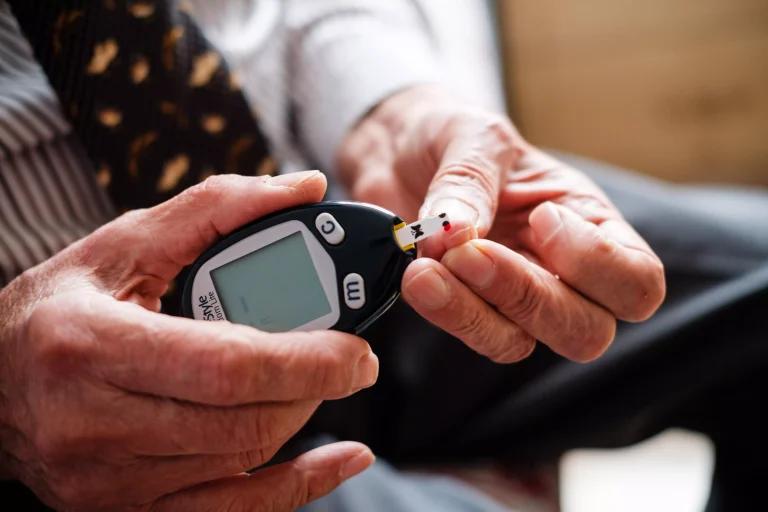
Multiple sclerosis (MS) is a neurological condition that affects millions of people worldwide. This chronic disease has a major impact on the lives of those diagnosed, causing a range of symptoms from optic nerve damage to muscle weakness. Despite years of research, the exact nature of MS remains a subject of ongoing debate within the medical community, particularly regarding its classification as an autoimmune disorder.
What is multiple sclerosis?
Myelin and nerve function
Multiple sclerosis (MS) is a complex neurological condition that affects the central nervous system (CNS). MS is caused by damage to the myelin sheath, a protective covering that surrounds nerve fibres. This sheath plays an essential role in passing on electrical signals along nerves. When healthy, the myelin sheath allows for quick and efficient communication between nerve cells. However, in MS, this protective layer becomes damaged. The damage to the myelin sheath has a serious impact on nerve function. As the myelin breaks down, nerve signals slow down or may even stop completely.
Symptoms of MS
This disruption in nerve communication leads to a wide range of neurological symptoms. Common symptoms include:
- Changes in eyesight (double vision, vision loss, optic neuritis)
- Muscle weakness
- Loss of coordination
- Changes in sensation
- Sexual dysfunction
The immune system
In MS, the body’s immune system mistakenly identifies myelin as a threat. This triggers an autoimmune response where the immune system attacks the myelin and the cells responsible for producing it. The exact cause of this immune system remains unknown, but it has a devastating effect on the central nervous system.
The immune attack involves various components of the immune system. T lymphocytes, B lymphocytes, and plasma cells all participate in the inflammatory process. These immune cells enter the central nervous system, particularly around blood vessels, leading to inflammation and subsequent tissue damage.
Lesion formation
One classic sign of MS is lesions, also known as plaques, in the brain and spinal cord. These lesions are the areas where myelin has been destroyed, leaving behind scarred tissue. The process of lesion formation begins with inflammation around small blood vessels in the CNS. As the immune attack progresses, it leads to demyelination (breakdown of myelin) and damage.
Lesions can be classified based on their activity level. Active lesions show ongoing inflammation and myelin destruction, while chronic lesions may have less inflammation but still contribute to neurological problems. Some lesions may partially heal through remyelination, a process where new myelin is formed around damaged nerves. However, this repair process is often incomplete, leaving lasting damage to the CNS.
Autoimmune or not
The classification of multiple sclerosis (MS) as an autoimmune disease has been a subject of intense debate in the medical community, but the evidence supporting it remains weak and circumstantial. MS is more likely to be caused by some of the following risk factors and triggers:
Genetics
Multiple sclerosis (MS) has a complex genetic component. While not directly inherited, over 200 genes might influence susceptibility. The risk of MS increases for relatives of MS patients, with siblings having a 2.7% chance and children of affected parents having a 1.5% chance of developing MS. However, recent studies suggest these rates might be even lower.
Environmental factors
Environmental factors account for about 75% of overall risk in MS development. Geographical location has an influence, with MS being more prevalent in regions farther from the equator. Low vitamin D levels and limited sun exposure during childhood and adolescence increase MS risk. Obesity in adolescence, particularly in females, has been linked to higher MS susceptibility. Lifestyle factors such as smoking and high saturated fat intake also contribute to increased risk.
Viral infections
Viral infections are believed to be potential triggers for MS. The Epstein-Barr virus (EBV) has shown a strong link with individuals who have had a mononucleosis infection, having twice the risk of developing MS. Other viruses, including human herpesvirus, cytomegalovirus and varicella-zoster virus, have also been linked with MS. These viruses can affect the central nervous system and trigger inflammatory responses, potentially contributing to MS pathogenesis.
MS treatment
Occupational and physical therapy
Physical and occupational therapy can play a crucial role in helping individuals with MS maintain their physical function, improve mobility, and adapt to changes in their abilities. Therapists can provide tailored exercises, assistive devices, and strategies to address issues like muscle weakness, balance problems, and fatigue.
Medication
In addition to disease-modifying therapies, healthcare providers may prescribe medications to help reduce specific symptoms of MS, such as:
- Muscle relaxants: Medications like baclofen, tizanidine, and cyclobenzaprine can help reduce muscle stiffness, spasms, and spasticity
- Fatigue-reducing drugs: Amantadine, modafinil, and methylphenidate have been used to help manage MS-related fatigue
- Pain medications: Antiseizure drugs, antidepressants, and other pain relievers can be employed to address neuropathic pain and other types of discomfort associated with MS
- Medications for bladder and bowel dysfunction: Anticholinergic medications and other treatments can help individuals with MS manage issues like urinary incontinence, overactive bladder, and constipation
- Vitamin D or other supplements
- Complementary and alternative treatment: Such as acupuncture or cannabis
Living with multiple sclerosis
Coping strategies
Living with multiple sclerosis (MS) presents numerous challenges that affect both physical and emotional well-being. Patients often experience a range of symptoms, including pain, fatigue, and cognitive difficulties.
Seeking professional help, such as therapy or counselling, can provide valuable strategies for dealing with anger, depression, and other emotional challenges. It’s important to acknowledge negative feelings without becoming overwhelmed by them. Practising gratitude and focusing on positive aspects of life can help maintain a balanced perspective.
Support systems
Social support plays a vital role in managing MS. Family, friends, and healthcare professionals form a crucial network that can provide emotional, informational, and practical assistance. Support groups offer opportunities to connect with others facing similar challenges, share experiences, and exchange coping strategies. For those with children, open communication about the condition is essential.
Quality of life considerations
Improving the quality of life for MS patients involves addressing various aspects of daily living. Prioritising a healthy lifestyle, including a balanced diet and regular exercise can have significant benefits. Adequate sleep is crucial, as MS can often disrupt normal sleep patterns. Creating a friendly environment at home and work can enhance safety and accessibility. While managing MS can be challenging, focusing on self-care, maintaining social connections, and seeking appropriate medical care can help individuals lead fulfilling lives despite the condition’s unpredictable nature.
Conclusion
Multiple sclerosis remains a complex and challenging neurological condition, with ongoing debates about its classification as an autoimmune disease. The combination of genetics, environmental factors, and potential viral triggers highlights the complex nature of MS. As research continues, our understanding of MS grows, offering hope for improved treatment options for disease progression in the future.
Sources
- Multiple sclerosis – Symptoms and causes – Mayo Clinic
- Multiple Sclerosis (MS): What It Is, Symptoms & Treatment
- Multiple Sclerosis – National Institute of Neurological Disorders and Stroke
- Multiple sclerosis – NHS
- What is Multiple Sclerosis (MS)? – MS Society
Medical Disclaimer
NowPatient has taken all reasonable steps to ensure that all material is factually accurate, complete, and current. However, the knowledge and experience of a qualified healthcare professional should always be sought after instead of using the information on this page. Before taking any drug, you should always speak to your doctor or another qualified healthcare provider.
The information provided here about medications is subject to change and is not meant to include all uses, precautions, warnings, directions, drug interactions, allergic reactions, or negative effects. The absence of warnings or other information for a particular medication does not imply that the medication or medication combination is appropriate for all patients or for all possible purposes.









